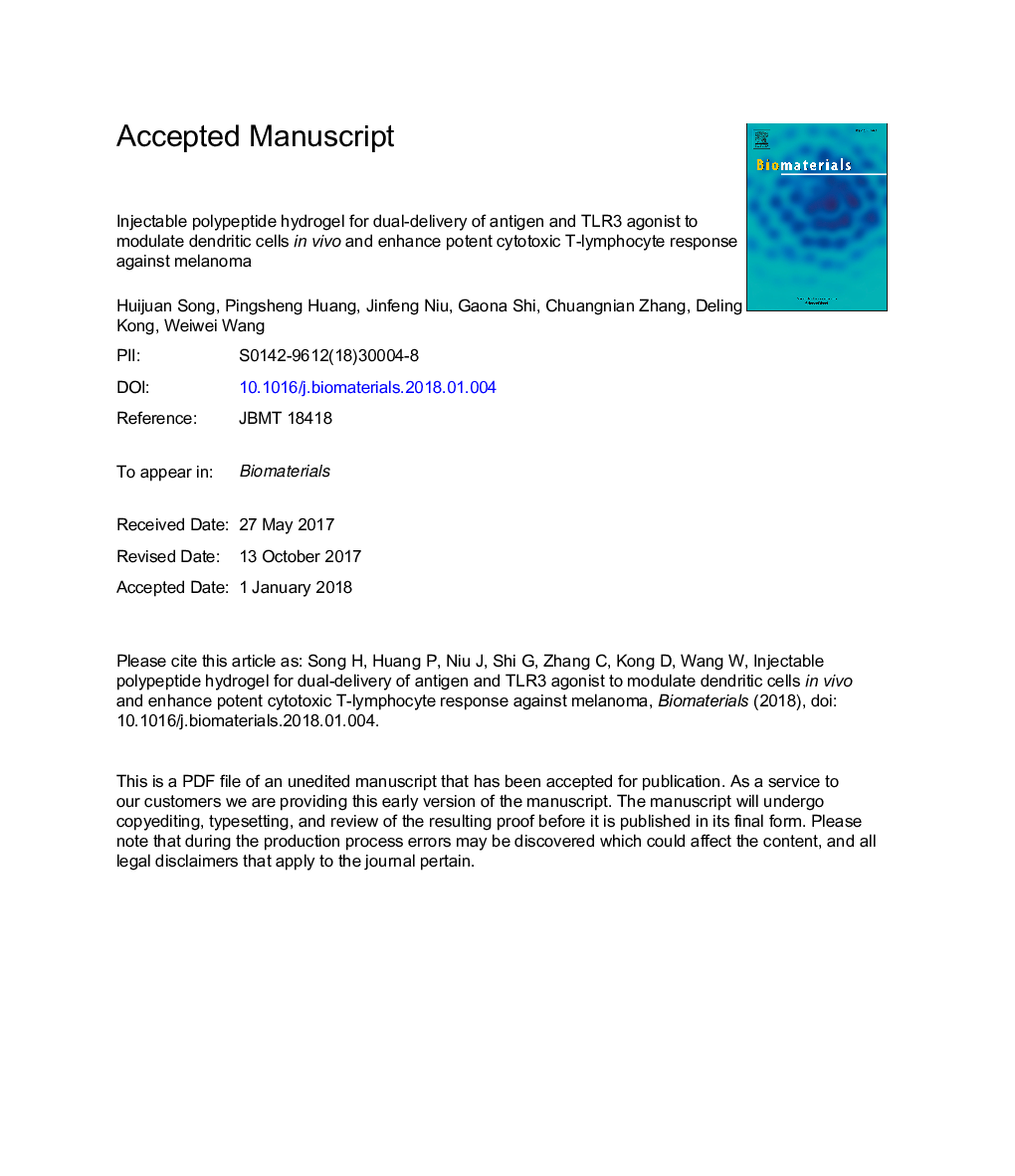| Article ID | Journal | Published Year | Pages | File Type |
|---|---|---|---|---|
| 6484684 | Biomaterials | 2018 | 33 Pages |
Abstract
Transplantation of immune cells manipulated in vitro to dictate immune responses in the body is promising in cancer immunotherapy. However, this approach suffers from low cell survival after administration, insufficient cell homing to lymph nodes, and off-target. Here we demonstrate an injectable and self-assembled poly(l-valine) hydrogel as the delivery carrier of cargoes including antigen and immunopotentiator for DCs modulation. Our results indicate the vaccine formulation composed of tumor cell lysates (TCL), TLR3 agonist, poly(I:C) and polypeptide hydrogel can robustly recruit, activate and mature DCs in vitro and in vivo by sustained release of TCL and poly(I:C). Hydrogel as the delivery system significantly improves antigen persistence at the injection site and antigen drainage to lymph nodes. Strikingly, subcutaneous injection of hydrogel-based vaccine formulations in melanoma-bearing mice elicits good antitumor efficiency by evoking strong cytotoxic T-lymphocyte immune response. Hydrogel vaccine significantly promotes the production of CD8+ T cells in draining lymph nodes and tumor infiltrating T-lymphocytes. These findings suggest that in vivo program of DCs by injectable polypeptide hydrogel encapsulated with antigen and immunopentiator is able to direct immune responses against cancer. Our study also implies that such a hydrogel may serve as a multifunctional delivery platform of vaccines.
Related Topics
Physical Sciences and Engineering
Chemical Engineering
Bioengineering
Authors
Huijuan Song, Pingsheng Huang, Jinfeng Niu, Gaona Shi, Chuangnian Zhang, Deling Kong, Weiwei Wang,
